Pomelo is a complete instrument for hobby-level gamma spectroscopy. It is built around the Pomelo Core and Physics which handle all the radiation detection, but adds a user interface and ample communication in the form of an Arduino-compatible ESP32-C6 add-on board, the Pomelo Zest.
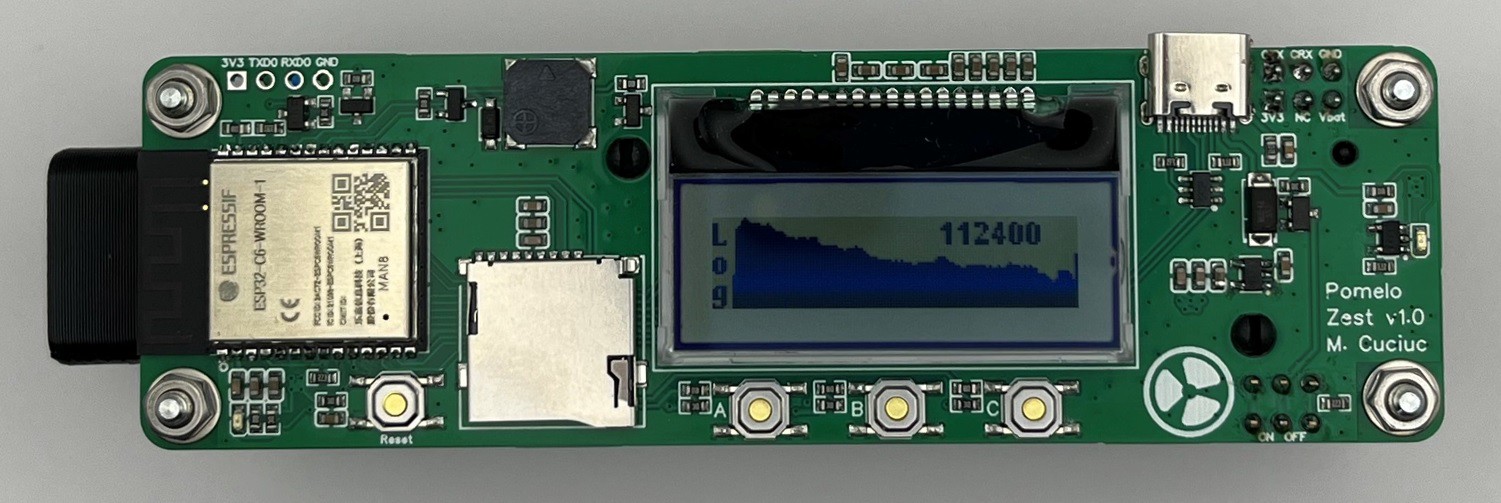
Pomelo Zest board displaying a Th-232 spectrum in logarithmic scale
The Pomelo Zest features:
- Arduino-compatible module with WiFi, Bluetooth, and ZigBee support, Espressif ESP32-C6
- 18650 battery & charging circuit, Microchip MCP73832
- USB CDC connectivity for ESP32 programming and interfacing
- 128x32 backlit monochrome LCD, Newhaven Display NHD-C12832A1Z-FSW-FBW-3V3
- 3 buttons + reset button
- SD card slot
- Buzzer
- 1 LED
A brief user interface demo of the instrument is shown in the following video.
The Pomelo Zest can be used as a generic ESP32-C6 development board, but its mechanical design is built to match the Pomelo Core and Physics so it might not be optimal because of the battery and power button placement.
Block diagram
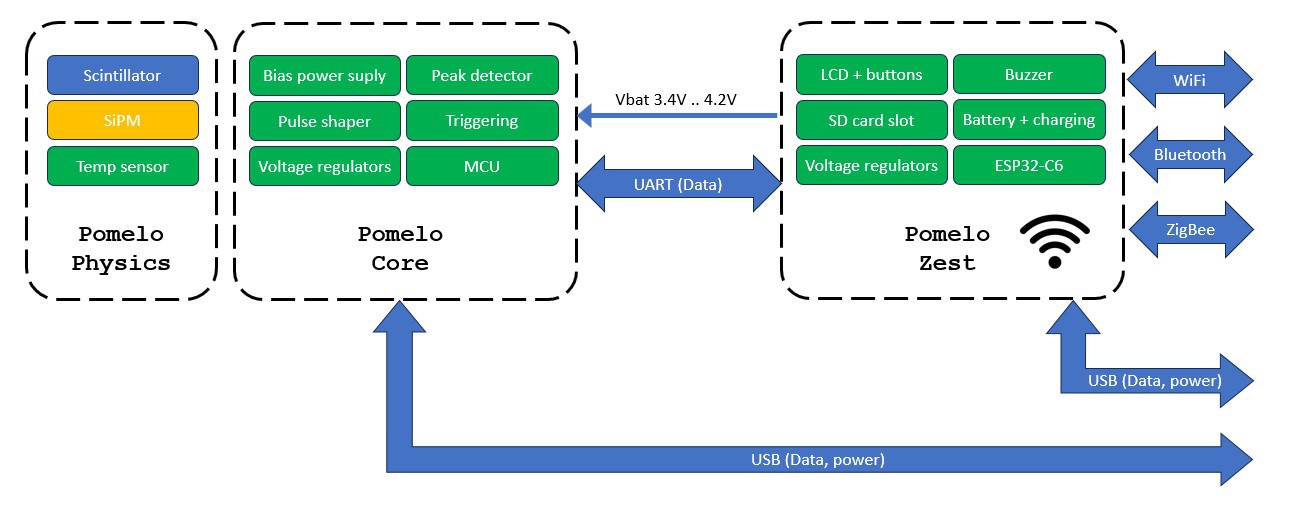
Detector block diagram showing available connectivity for the system components. The Pomelo Core can still be accessed from a computer through USB for control and firmware update even while it also connected to the Zest
The software on the Pomelo Zest is written in the Arduino environment so it is very easy to follow and modify, but not optimized for low power consumption. However, the Pomelo Core stays powered when the Zest is switched off, so data can still be accumulated using little power.
Schematic
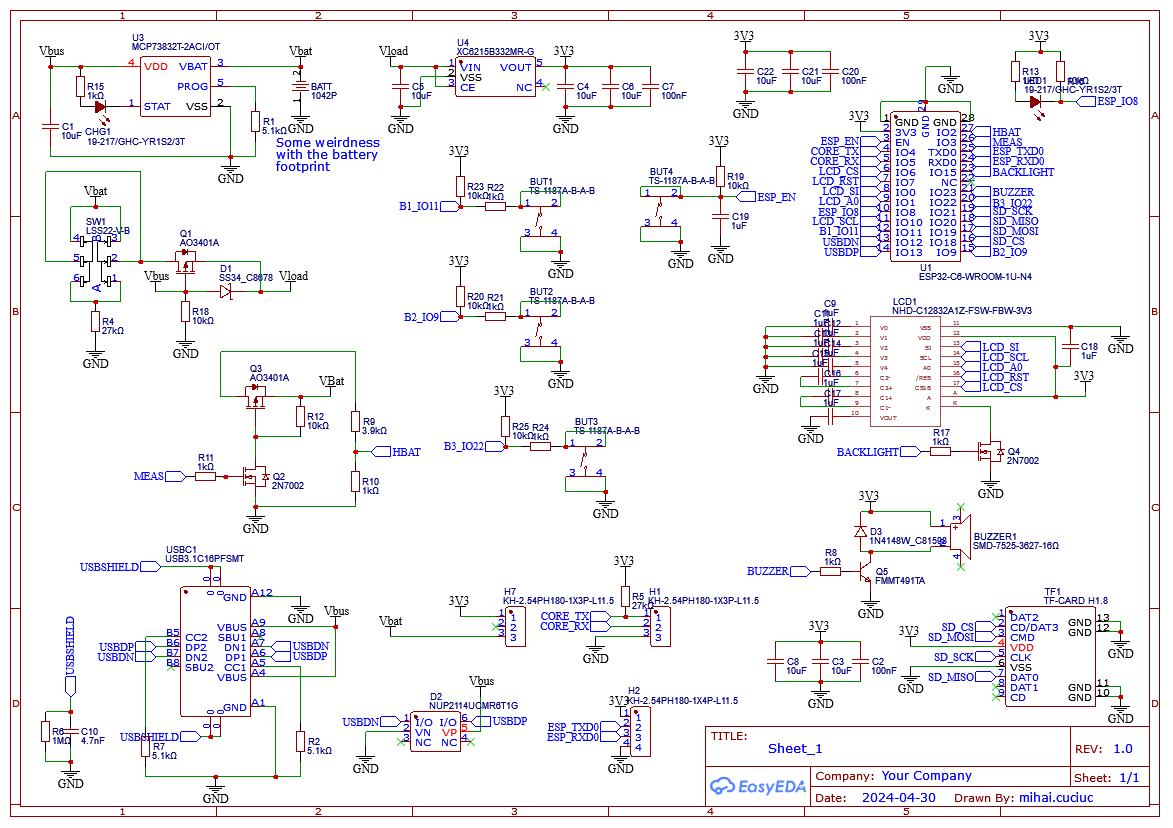
Pomelo Zest schematic
 mihai.cuciuc
mihai.cuciuc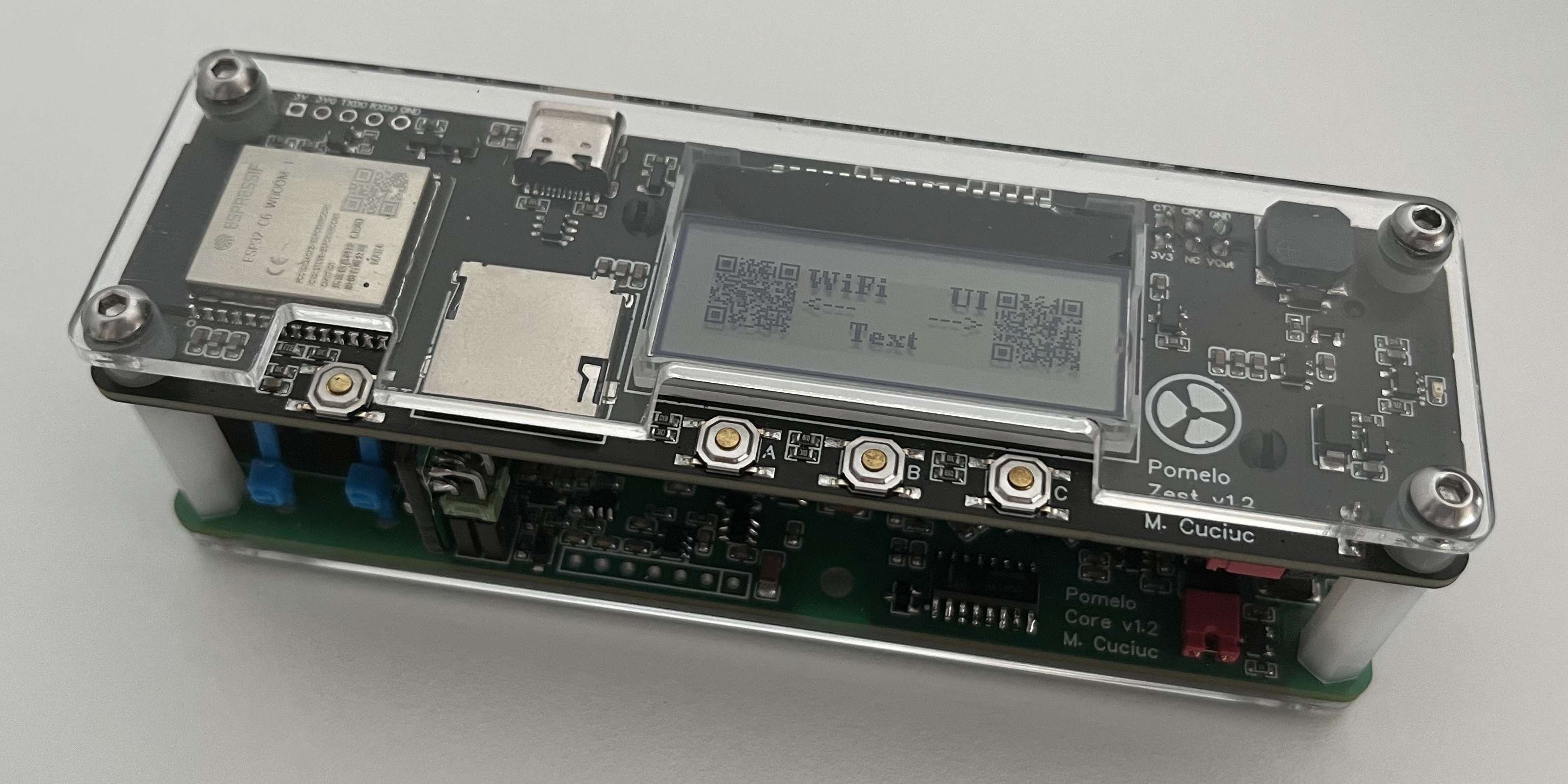
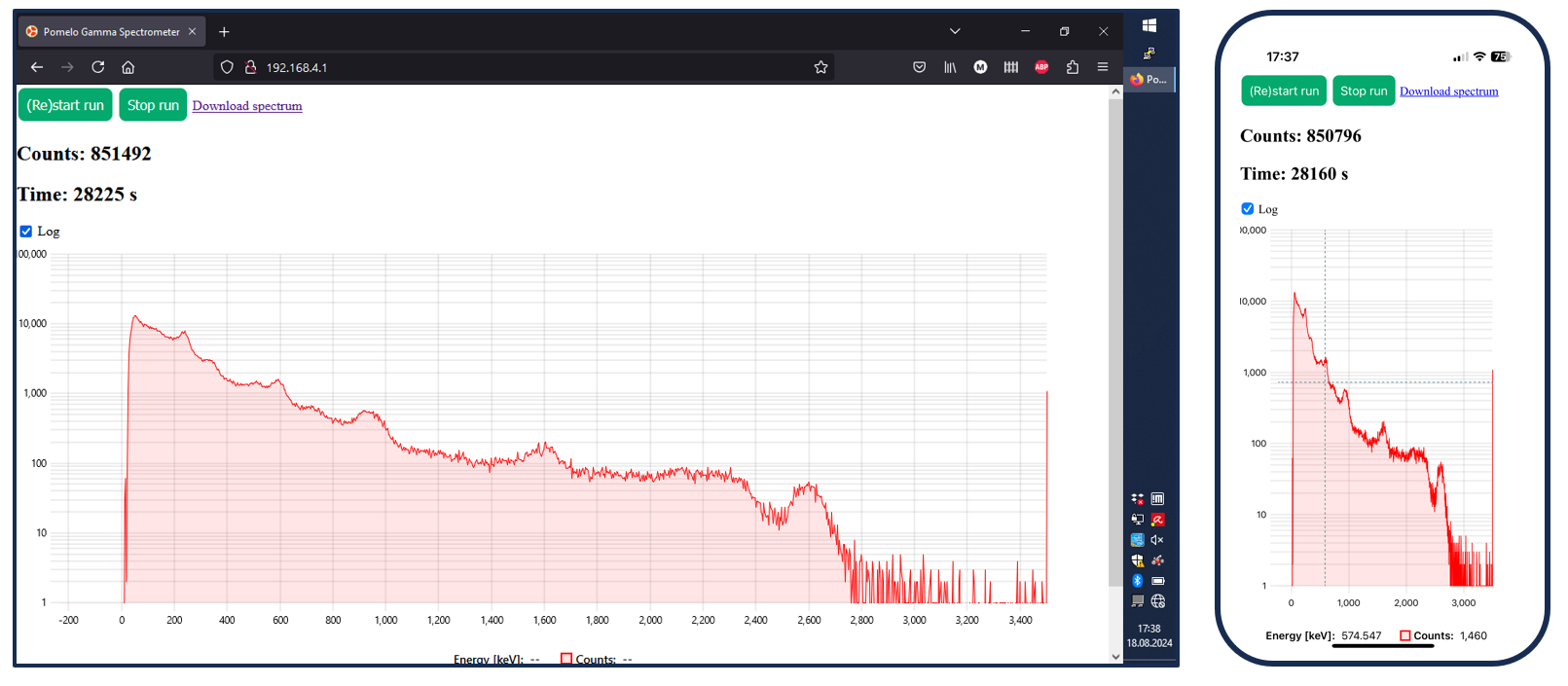
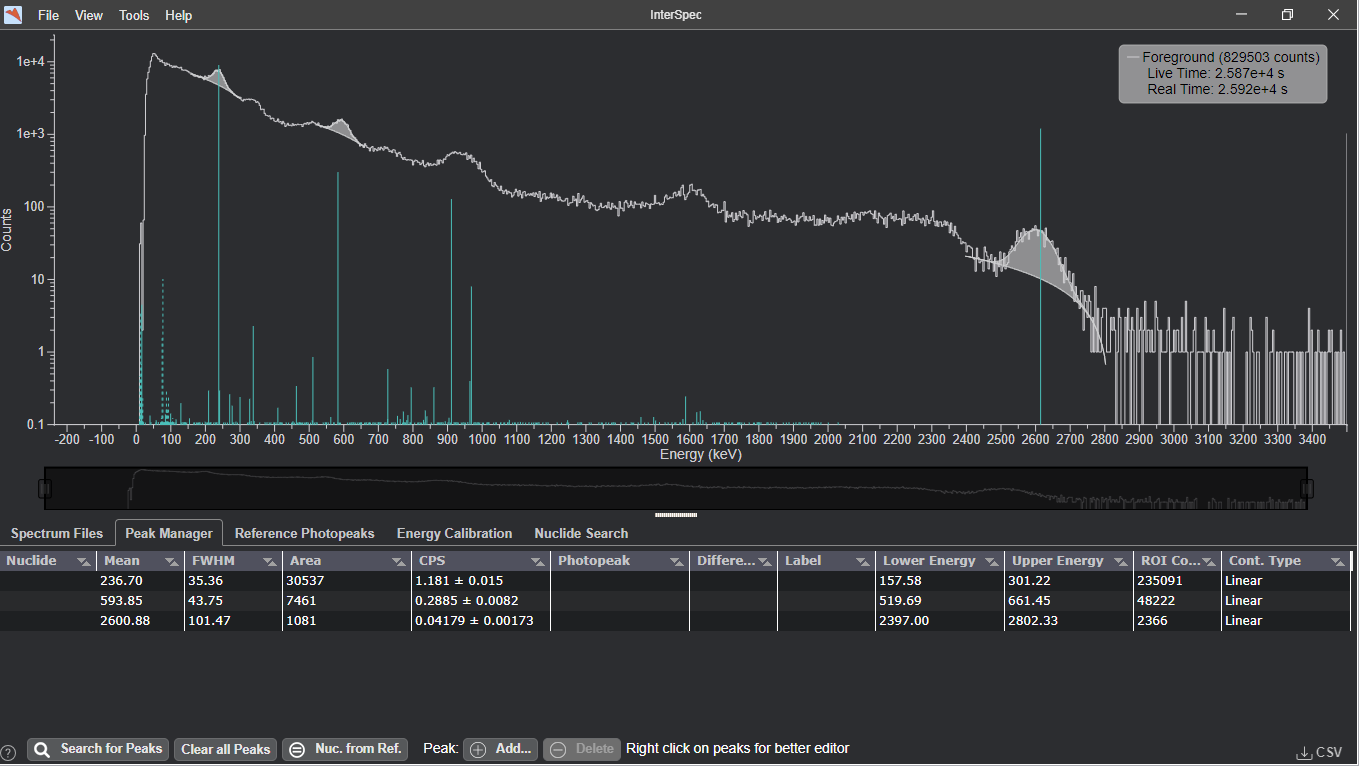
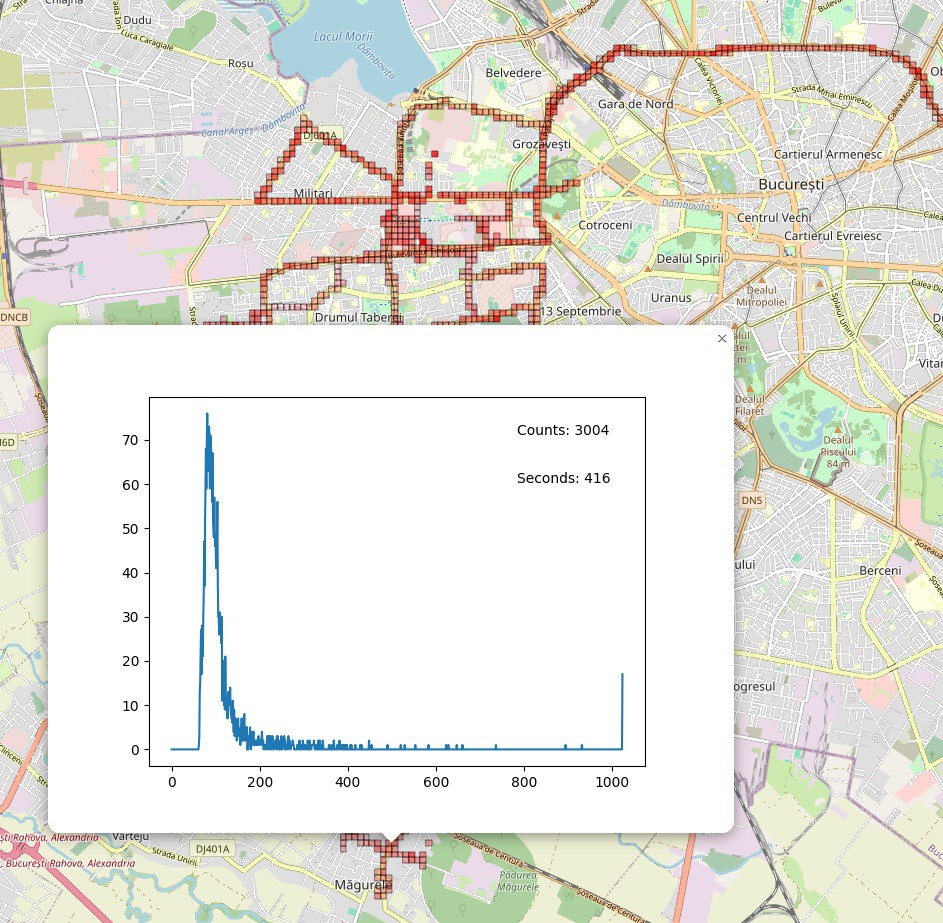
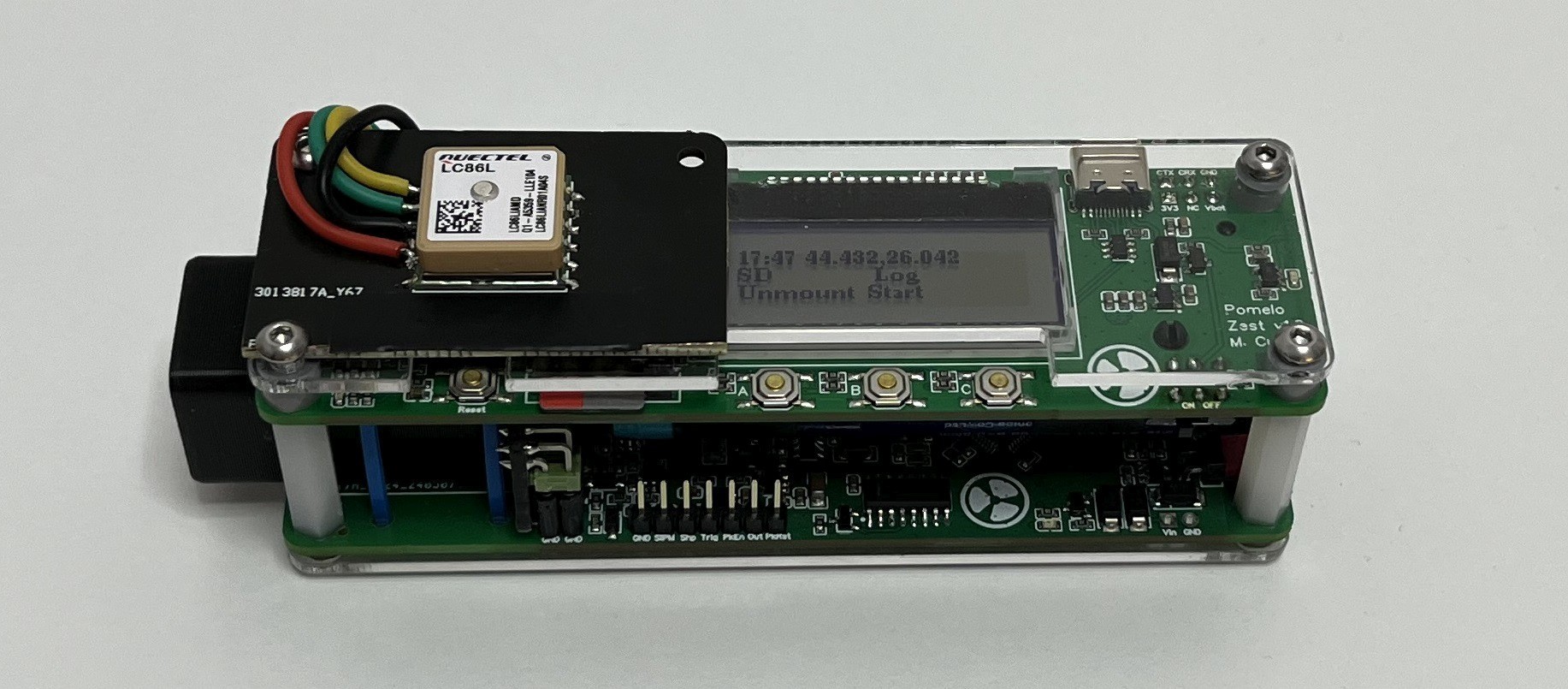
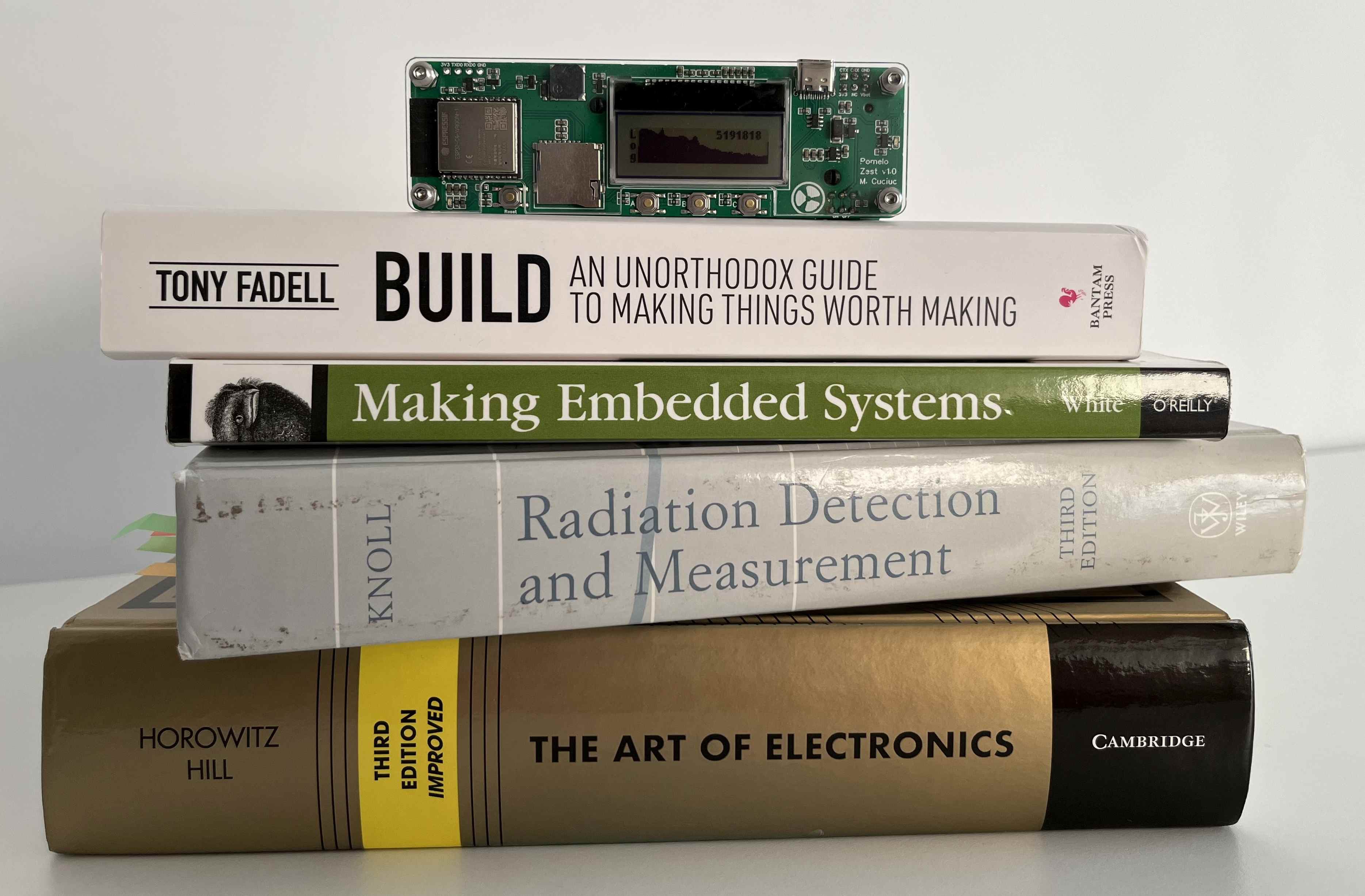
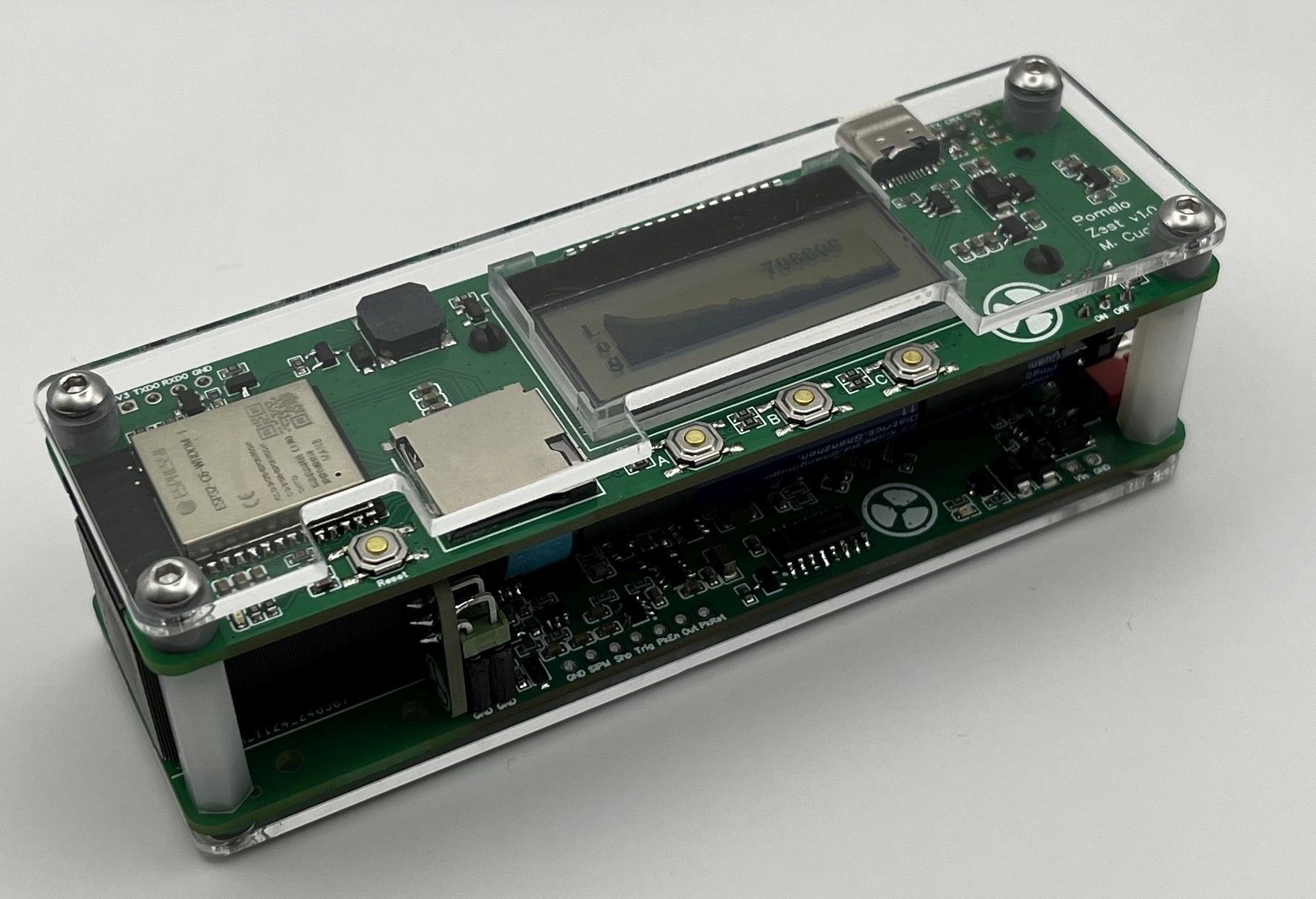
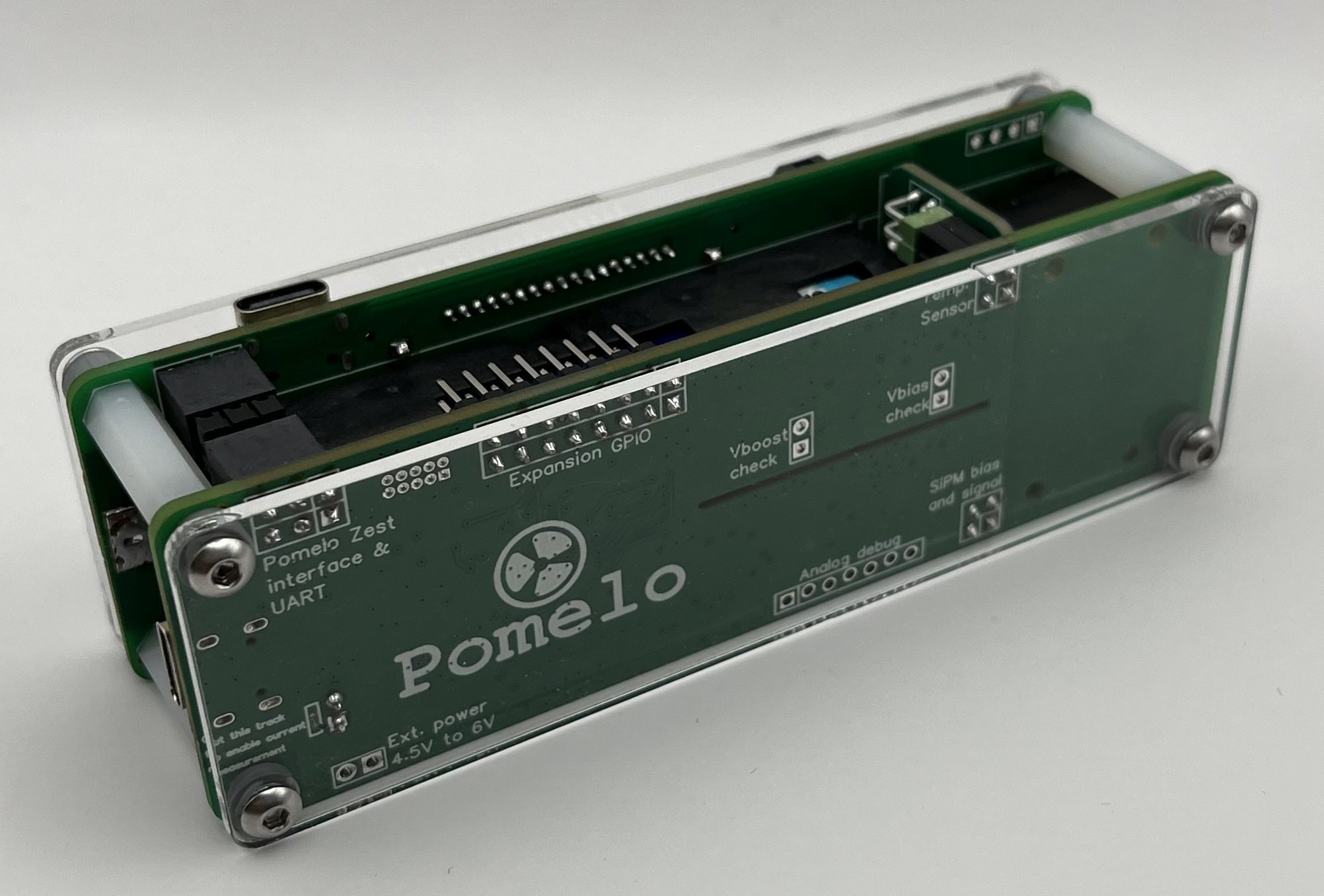


this is a very interesting project.
is it going to be available in some form like kit?